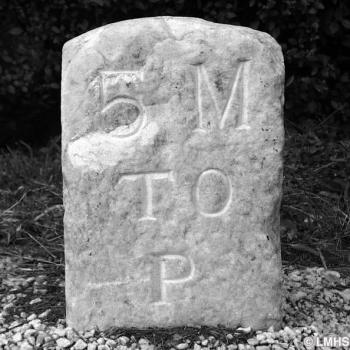I read the bible. Every morning. Wiping sleepers from my eyes, cradling a mug of hot coffee, I read the ancient words, prayers and creeds. Sometimes I find a challenge to my thinking. Other times, I find consolation. These past few days, I have found confirmation. Confirmation that we can’t assume progress. Things don’t just get better. When things seem to hit rock bottom in the story of God’s people, there can be further depths to descend. That sounds really crappy. Almost makes me want to crawl back into bed until it all goes away, because there’s always one more bone-headed loser to make things worse.

Drinking Himself Senseless
In the 26th year of Asa king of Judah, Elah king of Israel was hanging out in Tirzah and was “drinking himself senseless” (I Kings 16:8-10). How nice that these kings could spend some quality time together. Zimri, one of the Elah’s commanders strides in, sees the drunk king. His king. Zimri thinks this is his chance. He strikes the senselessly defenseless drunk king. Elah goes down. Dead. Zimri rises as king.
I’m sure Zimri had big plans. But before he even gets his boxes unpacked, the historian of First Kings writes, “In the 27th year of Asa king of Judah, Zimri became king for seven days ” (I Kings 16:15). Of course, we might think he got what he deserved. I wish the writer would have left a bit more mystery in the story instead of leading with that.
When king Omri of Israel was informed that Zimri had killed Elah and placed himself as king of Israel, the opportunistic cycle begins again. Omri, expecting Judah to be disorganized after the murder of Elah, attacks the town of Tirzah. “When Zimri saw that the town had been captured, he went into the keep of his royal palace, burned the palace over his own head, and died” (I Kings 16:18). “This is because of the sin which he had committed in doing what is displeasing to YHWH, copying the example of Jeroboam and the sin into which he had led Israel” (I Kings 16:19). This won’t be the last time we hear that statement. The arc of history bends towards justice, and all that. Omri loses half the kingdom as people follow a rival, Tibini, “but the faction of Omri proved stronger…and Omri became king” (I Kings 16:21-22).
It Gets Worse, Omri Buys a Hill
Eventually, to expand his empire, Omri buys a Hill from Shemer (I Kings 16:24). What stands out is I Kings 16:25, “Omri did what is displeasing to YHWH, and was worse than all his predecessors”. Oh good, we say, we’ve hit rock bottom. It couldn’t get any worse. All those ancient stories from Samuel begin to make sense.
So Samuel reported all the words of the Lord to the people who were asking him for a king. He said, ‘These will be the ways of the king who will reign over you: he will take your sons and appoint them to his chariots and to be his horsemen, and to run before his chariots; and he will appoint for himself commanders of thousands and commanders of fifties, and some to plough his ground and to reap his harvest, and to make his implements of war and the equipment of his chariots. He will take your daughters to be perfumers and cooks and bakers. He will take the best of your fields and vineyards and olive orchards and give them to his courtiers. He will take one-tenth of your grain and of your vineyards and give it to his officers and his courtiers. He will take your male and female slaves, and the best of your cattle and donkeys, and put them to his work. He will take one-tenth of your flocks, and you shall be his slaves. And in that day you will cry out because of your king, whom you have chosen for yourselves; but the Lord will not answer you in that day.’ But the people refused to listen to the voice of Samuel; they said, ‘No! but we are determined to have a king over us, so that we also may be like other nations, and that our king may govern us and go out before us and fight our battles.’ When Samuel had heard all the words of the people, he repeated them in the ears of the Lord. The Lord said to Samuel, ‘Listen to their voice and set a king over them.’ Samuel then said to the people of Israel, ‘Each of you return home.’ (1 Samuel 8:10-22).
The hill that Omri bought from Shemer becomes the place of worship and human sacrifice for Omri’s son. Yes, human sacrifice. Hopefully, we’ve hit rock bottom. I Kings 16:30, “Ahab, son of Omri did what is displeasing to YHWH”. We’ve heard that before, then continuing, “and was worse than all his predecessors.” Didn’t we just read the Zimri was displeasing to YHWH, and that Omri was worse than his predecessors?
Trump Makes All Presidential Predecessors Look Good

Nixon’s detente with China made him look better than Reagan’s sabre rattling and wars in Central America. Reagan’s ability to have an assault weapons ban made Bush look like a dupe for the NRA. Our present occupant of the White House is making all the other predecessors look brilliant, diplomatic, and just in comparison. Surely, we say, things can only get better.
Some think we are in the darkest day of democracy. Strongman dictators lean toward nationalism and fascism. But, things can’t get any worse, right? Certainly the world will realize the fog it has been in and will arise with wisdom and insight and justice. I don’t get that hope when I read the about the Kings of the Hebrew Bible. The bonehead jerks just keep on coming, one after another.
Nolite te Bastardes Carborundorum
They will grind you down if you play to their level. Those kings, dictators, and officials who relish power and might. But I remember my brother – a basketball coach – telling me that if he was 10 points down in a basketball game, and he had one-minute left in the game, he would tell his players to play the game they know. Quit reacting, responding. Just play your game. Your game. The story of biblical faith keeps coming around to rest on the vitality of relationships. Relationship with the earth, with other people, with oneself, and with God. Especially within the New Testament, an attitude of anarchy emerges. If we love God, love people, we’re on the right track. We will play our game. Our game. Love over fear.
“Our citizenship is in heaven. We look forward to a savior that comes from there—the Lord Jesus Christ,” (Philippians 3:20) is not a statement of quiet disregard for this world because we await being lifted out of this place. No it reminds us of our priorities, the way of God’s kin-dom, God’s reign and realm, neither arise from this political order, nor seek to serve it.












